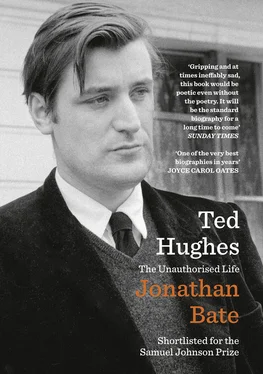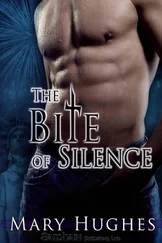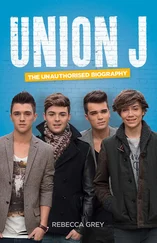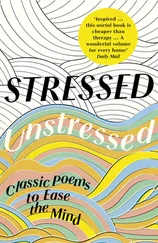1 ...8 9 10 12 13 14 ...18 When Gerald left school, he too went to work at Sutcliffe Farrar, which was located just beyond the Zion chapel. When the slump came in the early Thirties, men and women were laid off, or reduced to working two or three days a week. Billie had been working for his brothers-in-law but he was put on short time too, and in 1936 he got fed up, gave in his notice and went off with a friend to do building work for the government in South Wales. With no work at the factory, Gerald had taken to roaming the moors, leaving Edith miserable and alone with Olwyn and Ted, both under ten. She worked a little at the factory, sewing hooks and eyes on flannel trousers, and they had enough money to get by. They had paid off the house by then, food was reasonably cheap and Edith’s sewing skills meant that clothes could be mended. Billie came home once a month and soon realised how much he was missing the children. They had come into a little money from Granny Hughes and with many people struggling through the Great Depression there were opportunities in small business. Billie decided he wanted a newsagent’s. Eventually, they found one that was suitable. There was only one problem: it was 50 miles to the south-east, near Doncaster, in a ‘dark dirty place’29 called Mexborough.
They all went down in the removal van. When they arrived, Billie stood behind the counter of the new shop and the family walked in, trying to look confident. Then they went out and helped with the furniture. When the van left, Gerald sat down and cried.
Dumpy, bustling Moira Doolan was a powerhouse of ideas at the BBC in the early Sixties.1 Middle-aged and unmarried, she spoke with an Irish lilt and was passionate about her work as Head of Schools Broadcasting. In January 1961 Ted Hughes wrote to her with an idea for a radio series. She invited him to lunch and they worked up his proposal. It eventually became Listening and Writing , a sequence of ten talks for the Home Service’s daytime schools programming, broadcast between October 1961 and May 1964.2 Nine of the ten, together with illustrative poems by Hughes and others, were published in a book, aimed at teachers and dedicated to his own English teachers, Pauline Mayne and John Edward Fisher. Entitled Poetry in the Making , it became a classroom vade mecum for a generation and indeed one of Hughes’s bestselling books.3
In a brief introduction, he described the talks as the notes of a ‘provisional teacher’ and of his belief in the immeasurable ‘latent talent for self-expression’ in every child. The teacher’s watchword should be for children – he was typically thinking of pupils between the ages of ten and fourteen – to write in such a way that they said what they really meant. With self-expression comes self-knowledge and ‘perhaps, in one form or another, grace’.4
The series started from autobiography. The first talk, entitled ‘Capturing Animals’, began: ‘There are all sorts of ways of capturing animals and birds and fish. I spent most of my time, up to the age of fifteen or so, trying out many of these ways, and when my enthusiasm began to wane, as it did gradually, I started to write poems.’5 When the harvest was gathered in, little Ted would snatch mice from under the sheaves and put them in his pocket, more and more of them, until there were thirty or forty crawling around in the lining of his coat. He came to think that this was what poems were like: experiences captured and kept about the person.
He then explained that his earliest memory was of being three, placing little lead animals all the way round the fender of the fire in the front room, nose to tail. There was no greater treat than a trip to Halifax, where his mother or Aunt Hilda would buy him one of these creatures from Woolworth’s. Then for his fourth birthday Hilda gave him a thick green-backed book about animals. He pored over it, read the descriptions over and over again, drew copies of the photographs of animals and birds. Sometimes he would place the lead figures on the fender and read their descriptions from the book: the words put together with the things, the poet in the making. When he discovered plasticine, the possibilities for his personal menagerie became infinite, bounded only by the limit of his huge imagination.
He confided to his listeners that his passion for wildlife came from his elder brother. Gerald was his hero. And his saviour. One Christmas Billie Hughes bought his boys a Hornby clockwork train set. It was laid out in the front room by the piano. Three-year-old Ted loaded his lead soldiers aboard and Gerald wound up the engine. But an excited Ted tripped on the fender and fell towards the fire. Gerald scooped him out, but not before his hands had been blistered. ‘Fires can get up and bite you,’ Ted would say in later years.6
But this is Gerald’s memory. Olwyn’s earliest recollections are of trotting out into the fields with her mother and baby Ted, then of Ted’s two close friends, Derek Robertshaw and Brian Seymour, coming round every Saturday morning while the Hugheses were having breakfast, planning with Ted where they would go for the day and what animals they would find. They lived in the fields and they were never bored. As Olwyn remembered it, Gerald was always off with friends his own age. In Ted’s adult writings, the bond between the two brothers has a mythic force which exaggerates their closeness.
It was just before his fifth birthday that he joined Gerald on a camping trip for the first time. They were to spend the night up by the stream in the woods known as Foster Clough. Edith told Gerald not to let Ted take his model boat, for fear that he would sail it in the stream and get soaked. Those two friends, Derek and Brian, came round with advice, then the brothers set off, stopping on the way to buy sweets from the shop just past Uncle Walt’s factory. Watched by some very interested cows, they set up their tent and made a fire in a little clearing, fenced off with wire to keep the cattle out of the wood. Just before midnight, they heard their father’s call. He had come to check on them and was taking Ted home because there was a bull among the cows, making them too frisky for comfort. Ted was very excited by the bull.
From then on, Ted would often accompany Gerald on to the moor. He scurried silently beside his brother, pretending to be a Red Indian hunter. He kept a tom-tom drum hidden in Redacre Wood, where, according to local lore, an Ancient Briton, buried spirit of land and nation, lay beneath a half-ton rock.7 They loved the silence of the hills, shrouded in morning mist as they looked out over the valley below. They flew gliders and kites. Gerald taught Ted to identify all the different birds. The younger brother was fascinated by hawks and owls. Gerald shot rats, wood pigeon, rabbits and the occasional stoat, Ted acting as his retriever. Sometimes Gerald would let him have a go with the air rifle. Once the slug ricocheted back and gave him a bloody forehead, but they managed to keep the accident from their parents. They met an old-school gamekeeper called McKinley who regaled them with stories and sometimes paid them a shilling for a fat rabbit. They fished in the canal, using nets made from old curtains.
They poked around the site of a crashed plane – an RAF bomber on a training exercise had run into fog over Mytholmroyd – and salvaged bits of tubing for their own model planes. On the same site, they unearthed dozens of old lead bullets: it had been a firing range in the Great War.
In winter they sledged all the way down the fields above Jubilee Street. On snowy nights, they opened the skylight and listened to the shunting engines strain at the frozen trucks in the sidings. In summer, they would help out their uncles in the allotment or play tip cat in the fields with Uncle Albert – this was a game in which you balanced a block of wood on the end of a bat, then whacked it as far as you could send it. Occasionally, there was a special treat: a trip to the seaside, a first sight of big cats at Blackpool Zoo.
Читать дальше











